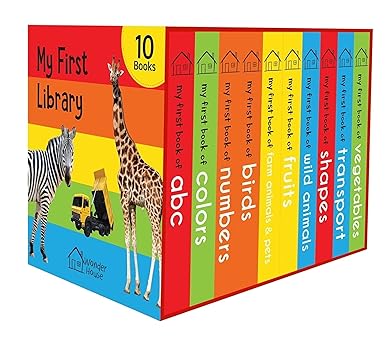
My First Library: A Journey into Imagination and Learning
There’s something timeless and magical about your first library. Whether you were a child clutching a parent’s hand or a curious teen exploring knowledge on your own, that initial encounter with rows of books, quiet corners and the scent of paper leaves an indelible mark. In this blog post, we’ll explore the emotional, educational, and cultural significance of My First Library and how it shapes our relationship with learning, creativity and community.
The Magic of Discovery
Walking into my first library felt like stepping into another world. The silence was comforting, the shelves towering and mysterious. Each book seemed to whisper secrets waiting to be uncovered. For many, this moment is the beginning of a lifelong love affair with reading.
Libraries are more than buildings filled with books—they are gateways to imagination. Whether it’s fiction, history, science, or poetry, the library offers a universe of ideas. That first visit often sparks curiosity, encouraging us to ask questions, seek answers, and dream bigger.
A Safe Haven for Young Minds
For children, the first library experience is often a safe space where they feel seen and valued. Storytime sessions, colorful picture books and friendly librarians create an environment that nurtures early literacy. It’s not just about learning to read—it’s about learning to love reading.
Many libraries offer programs specifically designed for young readers. From summer reading challenges to interactive storytelling, these activities foster a sense of belonging and achievement. My first library was where I learned that books could be friends, mentors and portals to other worlds.
Building Lifelong Habits
The habits formed during those early visits often stick with us. Regular trips to the library teach discipline, patience and responsibility. You learn to return books on time, respect shared spaces and explore topics beyond your school curriculum.
For students, libraries become essential tools for academic success. They offer access to resources that may not be available at home, including reference books, computers, quiet study areas and knowledgeable staff. My first library taught me how to research, think critically and learn independently.
Libraries as Community Anchors
Beyond personal growth, libraries play a vital role in community development. They are inclusive spaces where people of all ages, backgrounds and interests come together. From job search assistance to language classes, libraries offer services that empower individuals and strengthen neighborhoods.
My first library wasn’t just a place to read—it was a place to connect. I met people who shared my interests, attended workshops that broadened my horizons and participated in events that celebrated local culture. Libraries are democratic spaces, open to all and that inclusivity is part of their enduring charm.
The Evolution of Libraries
While the essence of libraries remains unchanged, their form has evolved. Today’s libraries are digital hubs, offering e-books, audiobooks, online databases and virtual programming. Yet, the emotional impact of my first library visit remains as powerful as ever.
Modern libraries blend tradition with innovation. You can still find a quiet corner to read, but you can also attend a coding workshop, borrow a tablet, or stream educational content. This adaptability ensures that libraries remain relevant in a rapidly changing world.
Personal Reflections: What My First Library Taught Me
Looking back, my first library taught me more than any classroom ever could. It taught me to be curious, to value silence and to appreciate diversity of thought. It was the first place where I felt intellectually free—free to explore, question and imagine.
I recall the thrill of receiving my first library card, the pride of checking out books on my own and the joy of discovering authors who spoke directly to my heart. These memories are not just nostalgic—they’re foundational.
Encouraging the Next Generation
If you’re a parent, teacher or mentor, introducing a child to their first library is one of the greatest gifts you can give. It’s not just about literacy—it’s about empowerment. A child who feels comfortable in a library is a child who feels comfortable in the world of ideas.
Encourage exploration. Let them choose their own books. Celebrate their discoveries. Libraries are places where children learn to trust their instincts, follow their passions, and build confidence.
FAQs About First Library Experiences
Q: What age is best for a child’s first library visit?
A: As early as possible! Many libraries offer programs for toddlers and preschoolers, including storytime sessions and sensory play activities.
Q: How can I make my child’s first library visit memorable?
A: Let them get their own library card, explore different sections and choose books that interest them. Make it a fun and empowering experience.
Q: Are libraries still relevant in the digital age?
A: Absolutely. Libraries have adapted to include digital resources but their role as community centers and learning hubs remains vital.
Q: What should I do if my child loses interest in reading?
A: Try different genres, audiobooks or graphic novels. Sometimes it’s about finding the correct format or topic that resonates.
Q: Can adults benefit from revisiting their first library?
A: Yes! Revisiting can rekindle your love for reading, offer new resources and reconnect you with your community.
Final Thoughts
My first library was more than a building—it was a beginning—a beginning of curiosity, independence and joy. Whether you’re reminiscing about your own experience or preparing to introduce someone else to theirs, remember that libraries are timeless treasures.
They remind us that knowledge is free, imagination is limitless and community is powerful. So go ahead—step into a library. You never know what you’ll discover next.
